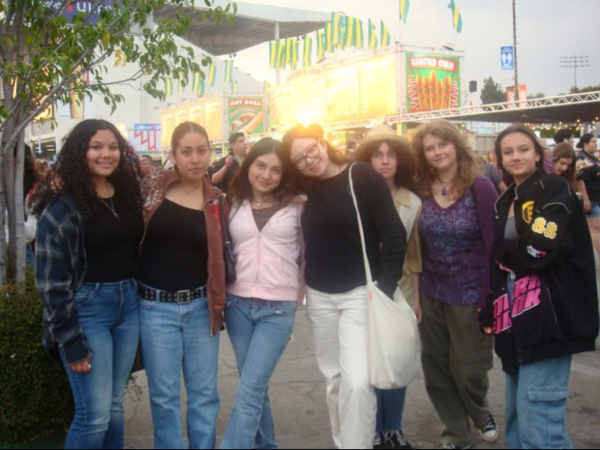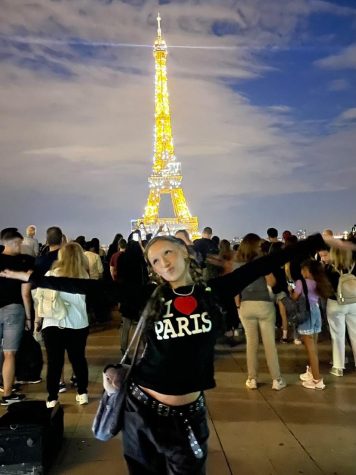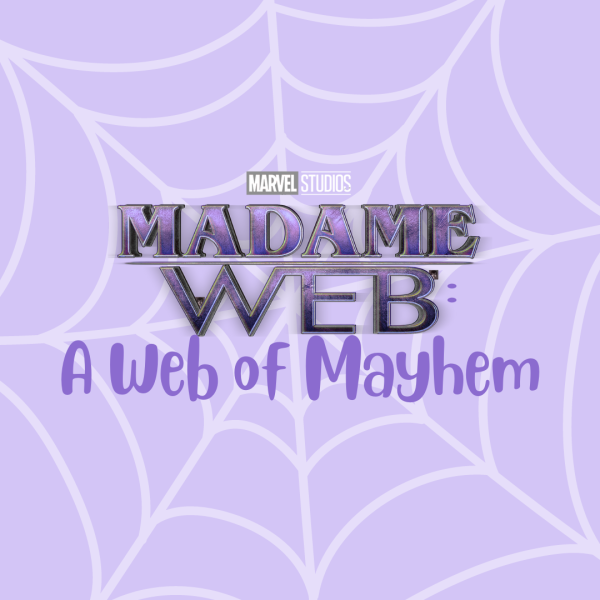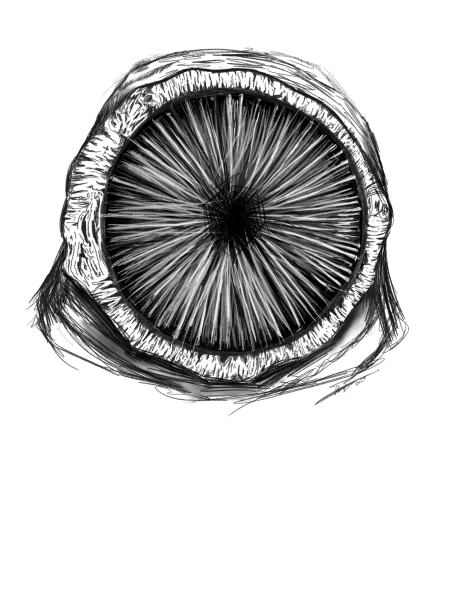Analyzing three of Taylor Swift’s Songs from “Midnights”
Anti-hero review by Wobi Antoniolli
Pop music superstar Taylor Swift released her 10th studio album on October 21st at midnight, its name appropriately being “Midnights.” Swift shared that the tracks were inspired by the “stories of 13 sleepless nights scattered throughout [her] life.” “Midnights” differs from the most recent albums Swift released as it is a deeply autobiographical and vulnerable account of her life, career, and relationships. The lead single, “Anti-hero” gives an inside look into the artist’s struggles with stardom, insecurities, and self-criticism.
The first part of the chorus of the song reads, “It’s me, hi/ I’m the problem, it’s me/ at teatime, everybody agrees”
Taylor “admits” that she is the antagonist, sardonically playing into the narrative constructed by the media that every controversy she’s been involved in has been her fault. The change in tone indicates her exhaustion at constantly being criticized by the public for anything she does.
Swift continues the chorus with the lyrics, “I’ll stare directly at the sun, but never in the mirror/ it must be exhausting always rooting for the anti-hero”.
The line can be seen as a reference to a lyric her song “The Archer,” which says “Then I hate my reflection for years and years.” The image of facing oneself in the mirror is symbolic for introspection and evaluating one’s own faults. Swift is unable to look at herself and confront her deficits but she can injure herself by ignoring them.
Swift continues on the theme of self-perception with the second verse of the song.
“Sometimes, I feel like everybody is a sexy baby/ And I’m a monster on the hill/ Too big to hang out, lurching toward your favorite city”
Swift comments on the nature of the music industry and how it is always filled with someone who is younger, thinner, or prettier than her. Being “too big to hang out” could be interpreted as a nod to her height or age and the alienation she feels from others as a result of it. The singer has previously commented on her struggles with body image. Being a woman in the public eye, she has received thousands of unsolicited comments about her body, which have led her to feel that she does not fit in with the rest of the crowd, always feeling a little out of place.
Overall, “Anti-Hero” is a song that while being deeply personal about Swift’s life, is relatable to a lot of people that may have gone through similar experiences of feeling antagonized, alienated, or flawed.
Maroon Review by Natalie DeWees
Ten years ago, Swift vivaciously told the world that “Loving him was red.” In contrast to the bright, passionate color Swift painted her 2012 album with, the second track on 2022’s Midnights holds a subtle angst. Although there are comparisons to draw between “Maroon” and “Red” — with both songs using shades of the same color to metaphorize nostalgia over a past relationship — considering “Maroon” as an updated “Red” is a mistake to be avoided.
The end of the second verse reads, “The lips I used to call home, so scarlet, it was maroon.”
Swift uses shades of red as a form of symbolism throughout the song. This particular lyric includes the titular shade and is the core of the song, representing an ex-lover, and even possibly a bad breakup. Featured throughout the song, colors are personified to represent the ups and downs of this relationship. The scarlet blood rushing to her cheeks depicts times of passion, when she felt close to her partner whilst the rust growing between telephones illustrates a couple losing contact with each other. Swift also alludes to two different types of flowers both representing the relationship, carnations and roses. Carnations typically being a more affordable bouquet while roses are considered higher-end could potentially mean that her and her partner originally thought the relationship was more than it was meant to be.
In “Maroon,” darker shades are utilized to describe how her perception of a past relationship has changed as she’s grown. Without the lips she used to call home, Swift could have discovered a new vulnerability she never knew, and she is most likely able to find comfort now that she is reflecting on that later in life.
Lavender Haze Review by Rhea Sethi
As the first track on Midnights, “Lavender Haze” sets the tone for the entire album with its autobiographical yet relatable lyrics, as well as its upbeat tone and electropop genre.
The song is centered around a loving relationship and Swift’s desire to protect it. In Swift’s own words, a lavender haze is “a common phrase used in the 50s where they would just describe being in love. Like, if you were in a lavender haze, that meant that you were in that all-encompassing love glow, and I thought that was really beautiful. And I guess theoretically when you’re in the lavender haze, you’ll do anything to stay there, and not let people bring you down off of that cloud.”
The track – and by extension, the entire album– starts with the phrase “Meet me at midnight”, which she has used several times to promote the album. Who she is addressing is left intentionally vague, leaving the question of if she is talking to her listeners or to her lover. The phrase can also imply a secret rendezvous, as privacy is important to a celebrity like Swift, whose every move is analyzed and examined.
This pressure Swift feels is acknowledged by her in the lines “ I been under scrutiny / You handle it beautifully“. Throughout her entire career, Swift has been scrutinized and criticized for her love life, and her artistry has been dismissed and trivialized for the sake of gossip and tabloid rumors. Unlike her previous ones, Swift has fought to keep her current relationship as private as possible, and compliments her lover’s ability to dismiss the spotlight.
The gist of this entire song can be summarized in the lyrics “Talk your talk and go viral / I just need this love spiral”, which displays Swift’s disregard for what people say about her and her commitment to protecting her relationship from the public eye.
Hello there! Our goal is to provide relavent, engaging journalism for readers of all ages. Your donation will support the student journalists of the Wolfpacket at Claremont High School, and will allow us to purchase equipment, print our monthly issues, and enter in journalism competitions. We appreciate your consideration!
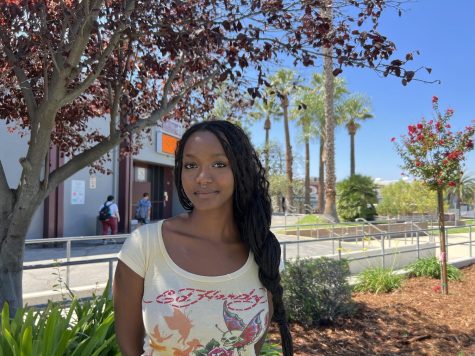
This is Wobi Antoniolli’s (12th grade) first year as a reporter for the Wolfpacket, though she took an interest in journalism many years prior. Previously,...
Natalie DeWees is a senior at CHS and a second year reporter. Outside of class, Natalie occupies her time with volunteer activities, including a crisis...

Rhea Sethi is a reporter on the Wolfpacket staff in her senior year at CHS. She joined the Wolfpacket last year due to her lifelong passion for reading...






